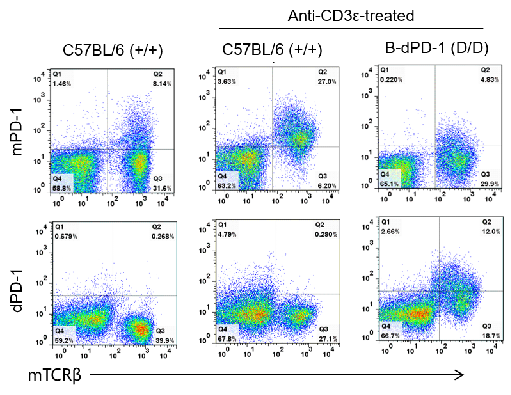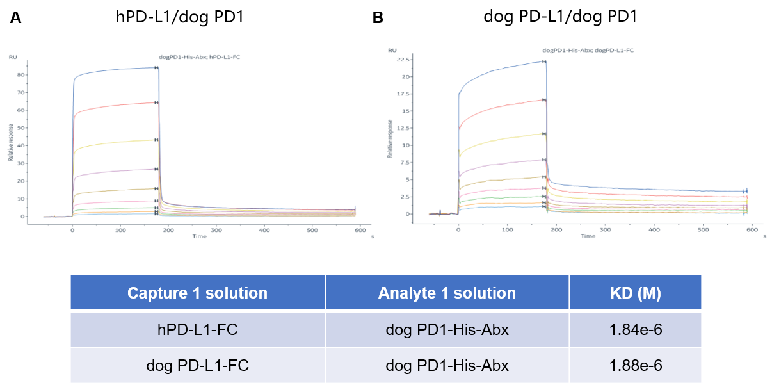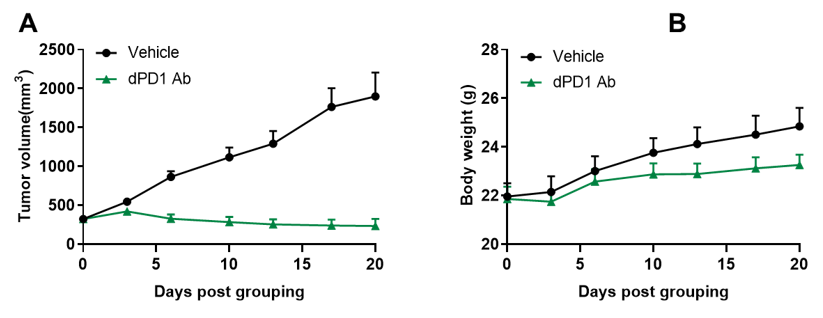| Strain Name |
C57BL/6-Pdcd1tm1(dPDCD1)Bcgen/Bcgen
|
Common Name | B-dPD-1 mice |
| Background | C57BL/6 | Catalog number |
110022 |
|
Aliases |
PD1; PD-1; CD279; SLEB2 | ||
|
NCBI Gene ID |
18566 |
||
Protein expression analysis

Strain specific PD-1 expression analysis in homozygous B-dPD-1 mice by flow cytometry. Splenocytes were collected from wild-type C57BL/6 (+/+) and homozygous B-dPD-1 mice (D/D) stimulated with anti-CD3ε in vivo, and analyzed by flow cytometry with species-specific anti-PD-1 antibody. Mouse PD-1 was only detectable in wild-type C57BL/6 mice. Dog PD-1 was exclusively detectable in homozygous B-dPD-1 mice but not in wild-type mice. Results indicated that the anti-mouse PD-1 antibody may cross-react with dog PD-1.
Species specificity analysis of PD-1 and PD-L1


Antitumor activity of anti-canine PD-1 antibodies in B-dPD-1 mice. (A) Anti-canine PD-1 antibody inhibited MC38-hPD-L1 tumor growth in B-dPD-1 mice. Murine colon cancer MC38-hPD-L1 cells were subcutaneously implanted into homozygous B-dPD-1 mice (female, 9 weeks old, n=7). Mice were grouped when tumor volume reached approximately 300 -350 mm3, at which time they were treated with anti-canine PD-1 antibody and schedules indicated in panel. (B) Body weight changes during treatment. As shown in panel A, anti-canine PD-1 antibody was efficacious in controlling tumor growth in B-dPD-1 mice, demonstrating that the B-dPD-1 mice provide a powerful preclinical model for in vivo evaluation of anti-canine PD-1 antibodies. Values are expressed as mean ± SEM.












 京公网安备:
京公网安备: